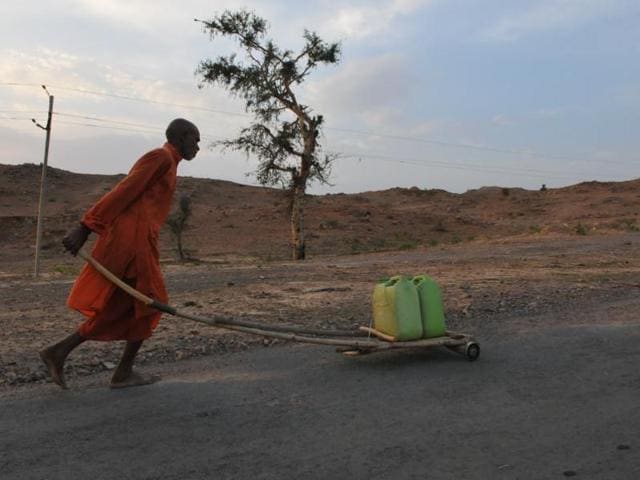Revise drought rules as buck stops with you, SC directs Centre
The Supreme Court directed the Centre on Wednesday to revise its seven-year-old guidebook on droughts, ruling the Union government could not wash its hands of its constitutional responsibility if the states maintained an ‘ostrich-like attitude’ in declaring a rural crisis.
The Supreme Court directed the Centre on Wednesday to revise its seven-year-old guidebook on droughts, ruling the Union government could not wash its hands of its constitutional responsibility if the states maintained an “ostrich-like attitude” in declaring a rural crisis.

A bench of justice MB Lokur and justice NV Ramana held the “buck eventually stops” with the Centre under the Disaster Management Act to tackle the agrarian crisis that has gripped “one-third” of the country.
In a significant policy intervention, the court made several recommendations while delivering its verdict on a petition by NGO Swaraj Abhiyan seeking standard guidelines for declaring a drought, timely disbursement of crop loans, compensation and relief packages.
The court said it was the first part of the verdict. The second is likely to be delivered on Friday.
“It (the Centre) cannot totally wash its hands off on issues pertaining to Article 21 (life and liberty) of the Constitution but at the same time, we do not suggest that the authority of the state government to declare a drought or any other similar power is diluted,” the bench said, rejecting the Centre’s argument that it had no role in declaring a drought.
As the government cited the country’s federal structure as the reason behind the current policy, the bench said the ostensible purpose was to give enough elbow room to state governments to decide whether to declare a drought as the manual was only a reference document.
Read | Supreme Court pulls up states for ‘ostrich-like attitude’ on drought
But, the court added the Union of India had to maintain a delicate balance between federalism and its constitutional responsibility. It said the revised manual must mandate a time limit for the states to announce extreme weather.
“The revised and updated manual should liberally delineate the possible factors to be taken into consideration for declaration of a drought and their respective weightage,” the bench said, referring to how Bihar, Haryana and Gujarat had refused to accept the crisis.
The court directed the agriculture secretary to sit with the chief secretaries of the three states within a week to review whether there was a drought-like situation and if so persuade them to declare it. “There is no loss of face or prestige in the state declaring drought if it’s warranted, although succour to the distressed might be too late,” the court noted.
The court fixed December 31 as the deadline for the Centre to update the manual, which should also take into account humanitarian factors such as migration, suicides, distress, plight of women and children.
It ordered the constitution of a National Disaster Response Force – as mandated under the central legislation the National Disaster Management Act – within six months with appropriate and regular cadre strength. The 10-year-old law envisages a National Disaster Mitigation Fund, which the court said must be created within three months. Shocked to know that there was no National Disaster Management Plan to tackle a drought, the bench said the same should be done soon.
The directions said the Centre must stop the use of colonial methods and adopt modern scientific technology for early determination of a crisis. To avoid a crisis, it advised the government must prescribe innovative methods of water conservation.
Read | In times of drought: Overuse of water behind India’s dry days





